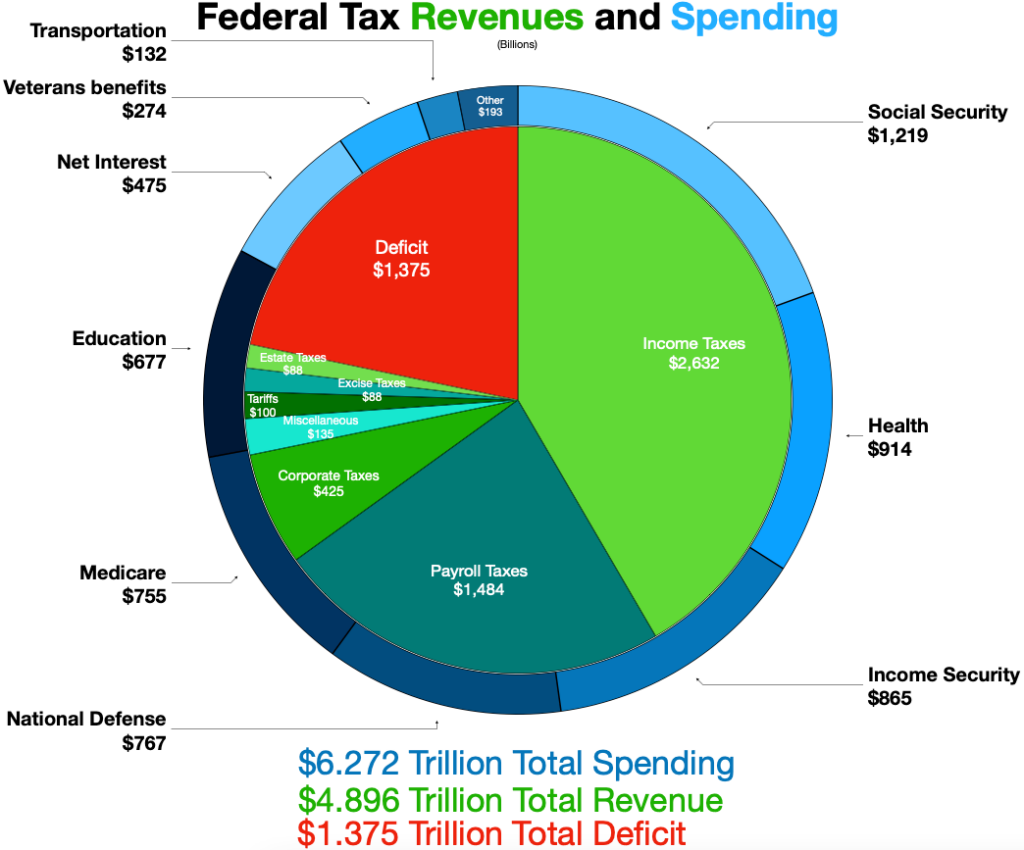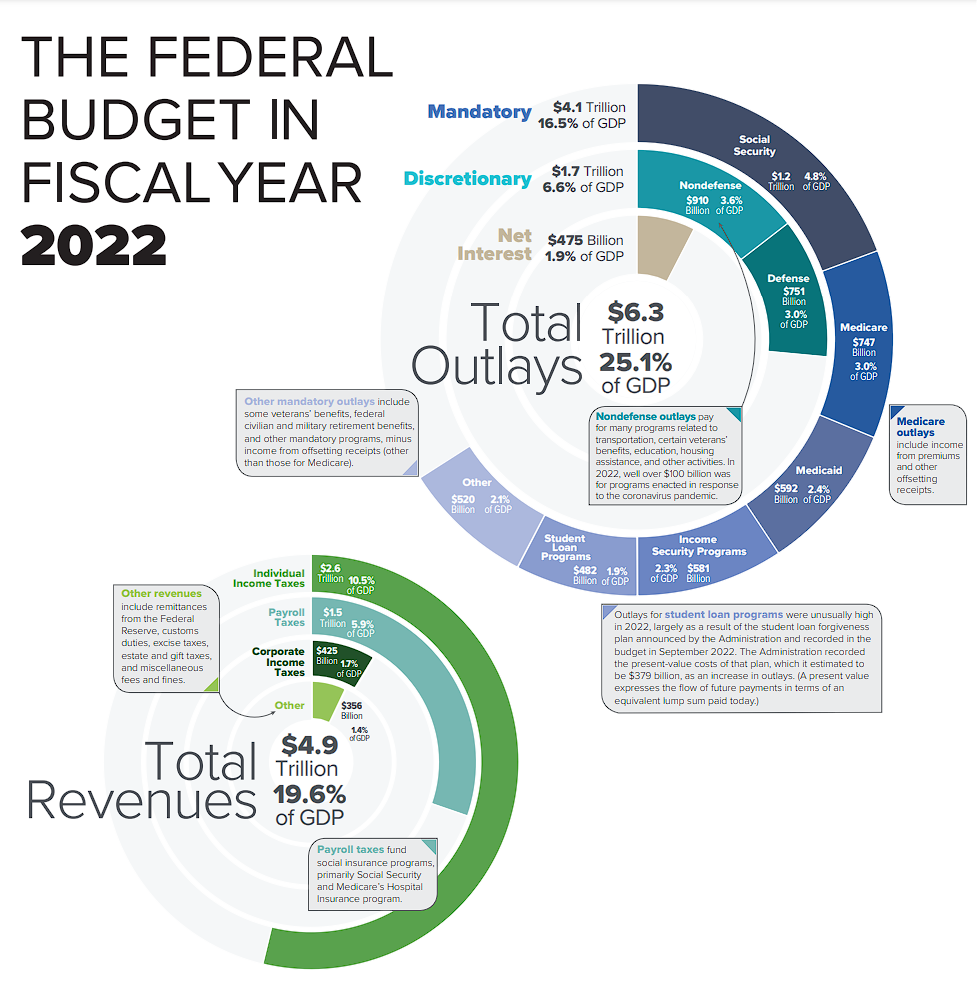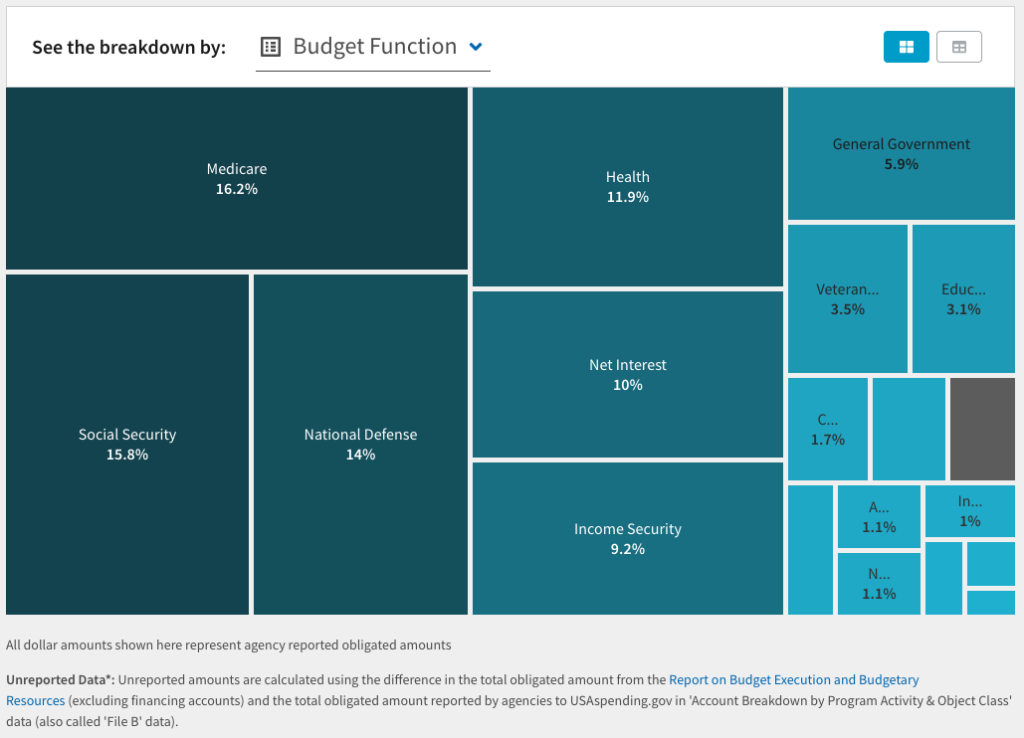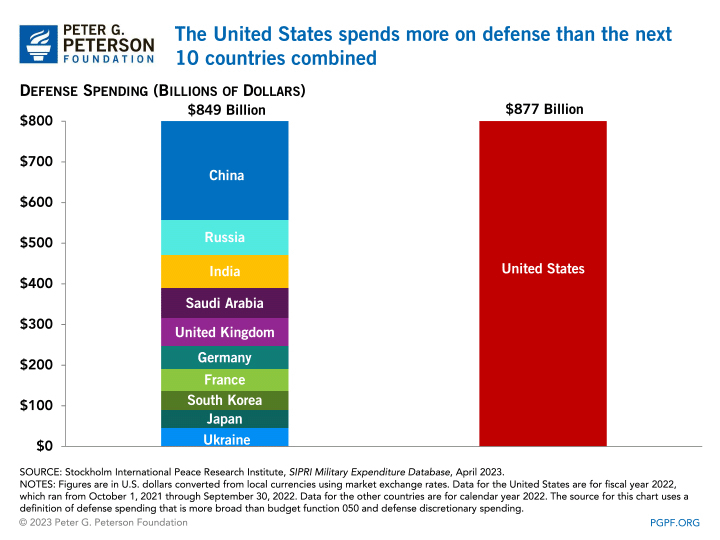There’s a classic antiwar poster in the early 2000s activist lexicon that communicates what my lawyer wife calls a “bad fact” by showing a dollar bill sliced up*: that the US spends 1/2 of our national budget on war.

That’s a jaw drop given that our budget is over $6 trillion dollars and, you know – war murders and traumatizes people and further decimates the environment. It’s also not quite accurate — we spend over half our **DISCRETIONARY** budget on national defense, but about 13% of ALL spending on Military and Defense.
US total spending on defense:

https://en.wikipedia.org/wiki/2022_United_States_federal_budget#/media/File:Federal_budget_2022.webp [calculates $767B to National Defense, breaks out Veterans benefits in a separate category]
Don’t relax too much though: the US discretionary budget is heavily weighted to defense spending with a large portion of the overall military spending coming from our “fun” money.
US Discretionary spending on defense / military: US discretionary spending on defense:

The US federal budget is $6.2 Trillion dollars, of which about $770 Billion was budgeted for the military and national defense [not including the VA $275B or Homeland Security $5B] at the end of 2022.
Budgeting
If you’ve been following along your own money roller coaster, you know two things:
1 / what we budget at the beginning of the month/year isn’t always what we spend, and
2 / when our spending changes, we have to go back and change things around.
This is also true for government and organization budgets. The after-action audit is on the plan you started with, which everyone understands can shift a little.
Or, a lot: the current 2023 allocation for military and national defense in the US is $1.1 Trillion – and Pres Biden is about to ask for another $100B. That will put our actual spend at $1.2 Trillion, $400 BILLION OVER THE PLAN.
You’ve hopefully heard about the difference between your fixed costs and your discretionary costs, aka the bills and and fun money. The bills are what you have to pay and they aren’t usually up for much debate. The decisions, and therefore the power, come up in discretionary budgets.
https://www.pgpf.org/sites/default/files/0053_defense_comparison-full.gif [calculates $877B]
Finally, like any budget, there’’s what you plan to spend and what you actually spend. The 2022 federal budget spent about $800 billion dollars, depending what you include, on military and defense. In 2023, we’ve already spent $736B [source: the US Treasury], and we PLAN to spend 14%, $1.1 trillion. [source: USA Spends] So, just like all of us, our spending plans and reality don’t ever exactly match.

So – in this context, Biden’s October 2023 ask for another $100B for Israel, Ukraine, and US border “security” is HUGE. This is equivalent to just slapping another 10% onto your bills. This much money could instead pay to power every house in the US with Solar, hire 1 million teachers, hire 890,000 nurses, or provide free tuition to 2 of 3 pubic college students [source: National Priorities] — but sure, dump it into camos and guns I guess.
The problem is: the US just keeps finding discretionary money. We already spend a freakishly large amount on defense as compared to other countries:

SO… FUCK TAXES?
Someone asked me if, as a response, it made sense to stop paying taxes in protest. I wish this was a more effective strategy!! But it 1/ doesn’t remove a lot of money from the system, and 2/ is difficult! It requires you to do more work than simply not paying taxes, in order to mitigate the negative effects of not paying taxes. At minimum you still have to file taxes, with a letter about why you’re not paying. Check out the War Resisters League for guidance.
If you’re really willing to do this level of work, why not become a church and pay no taxes (including on your resale shop and bingo game profits) – just remember to file the tax form saying you owe no taxes…
And if you REALLY want to shift spending: get BIG. Either big money, or big power: a big business that makes a LOT of money, or getting into government and voting to change things.
Wrapping up
If you want to dig more into the data, fellow nerd, check out the Treasury’s data tool, and USA Spending – both .gov sites.
Finally — while I love an analytic opportunity, it is so shitty why it is topical to examine US spending on it’s defense and military. Free Palestine!
*Sadly I could not find this poster — if you have a link and artist citation puh-lease oh please share with me!